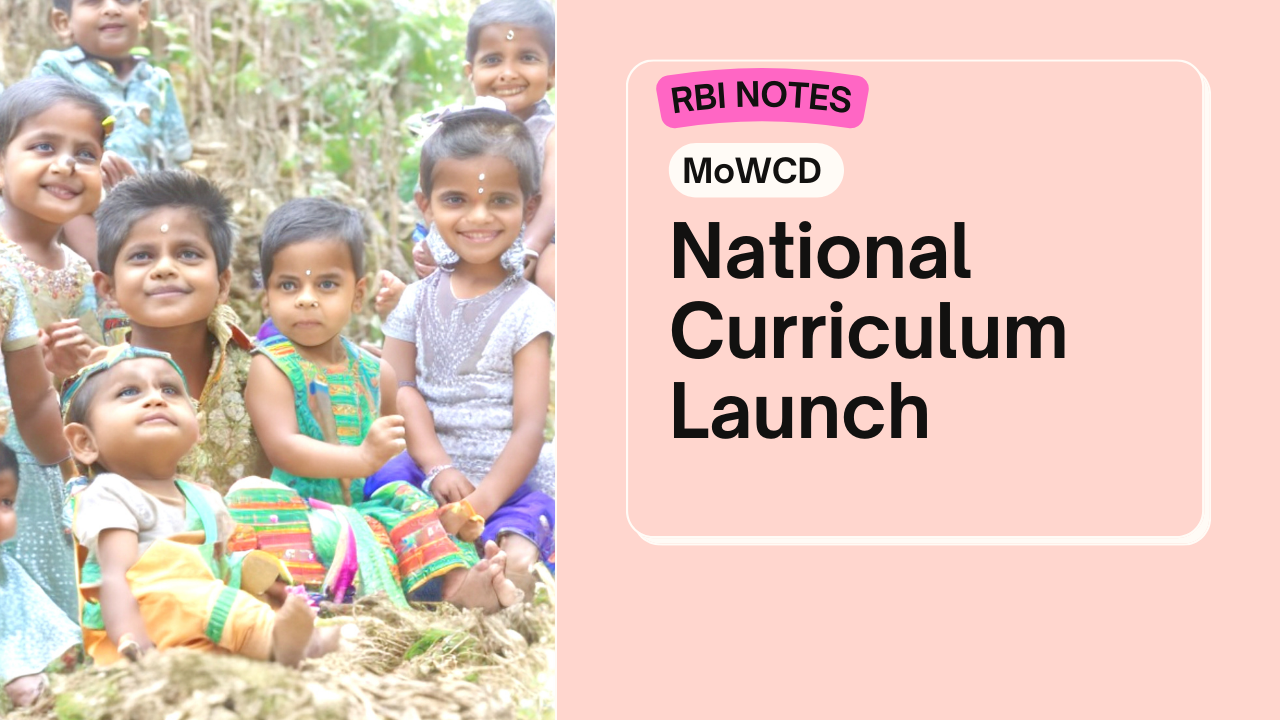Introduction: The Ministry of Women and Child Development (MoWCD) has introduced two pivotal guidelines to bolster Early Childhood Care and Education (ECCE) in India: the National Curriculum for Early Childhood Care and Education for children aged 3 to 6 years, and the National Framework for Early Childhood Stimulation for children from birth to 3 years.
National Curriculum for ECCE (3-6 Years):
- Objective: To enhance the quality of ECCE at Anganwadi Centers through structured, competency-based activities and lesson plans.
- Development Domains: Aligns with the National Curriculum Framework for Foundational Stage 2022, covering physical, cognitive, emotional, and social development.
- Learning Approach: Emphasizes joy-based and playful learning to prepare children for primary education, featuring a mix of child-led and educator-guided activities.
- Inclusivity and Assessment: Incorporates robust assessment tools to monitor child progress and includes specific provisions for children with disabilities (Divyang).
National Framework for Early Childhood Stimulation (Birth-3 Years):
- Aim: To empower caregivers and Anganwadi Workers to provide holistic early stimulation for optimal physical and cognitive development.
- Foundation: Based on the Nurturing Care Framework, it addresses both conceptual and practical needs in early childhood care.
- Key Components:
- Emphasizes crucial interactions such as serve and return (love, talk, play) and the use of positive guidance.
- Offers a comprehensive set of 36-month-wise activities suitable for home and Anganwadi settings, specially catered to also support Divyang children.
Implementation Strategy:
- Development Partners: Created by the National Institute for Public Cooperation and Child Development (NIPCCD) with inputs from an internal committee and various development partners.
- Training and Monitoring: NIPCCD is responsible for training Anganwadi workers using these frameworks. Integration into the Poshan Tracker app ensures consistent monitoring and support.
- User-Friendly Design: The curriculum and framework are designed for flexibility and ease of use, promoting activity-based learning environments.
Ministry Overview:
- Union Minister: Smriti Zubin Irani, representing Amethi, Uttar Pradesh.
- Minister of State: Dr. Munjpara Mahendrabhai Kalubhai from Surendranagar, Gujarat.
Conclusion: These initiatives by the MoWCD are crucial steps towards improving foundational childhood care and education across India, ensuring that children from birth to six years receive a harmonious development of skills and abilities through scientifically-backed methods and inclusive practices. The focus on responsive caregiving and structured educational pathways paves the way for a healthier, more educated young generation.


